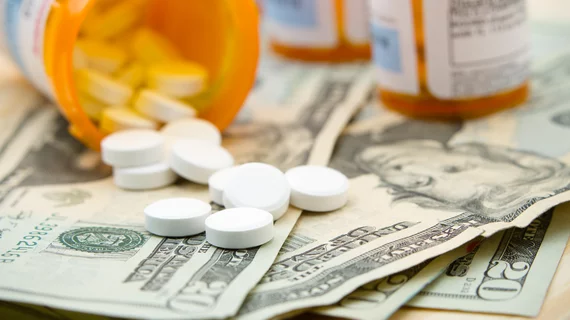Not everyone agrees Trump's new drug pricing model will work
Last week, the Trump administration announced it was considering a new drug pricing model that would base Medicare reimbursements on what other countries pay for certain medicines. The idea is part of the administration’s broad goal to lower prices of prescription medications, but the verdict is still out on whether the idea will lower costs in the long term.
The new model would specifically impact certain medicines under Medicare Part B, which includes physician-administered medicines as well as those administered in hospitals and clinics. The plan was introduced in an advanced notice of a proposal that could come in 2019. President Barack Obama’s administration backed down on a previous attempt to reform Part B payments after industry opposition.
Not everyone agrees the plan––which is projected to save $17.2 billion over five years––would have a major impact. Furthermore, it is unclear if the administration will have the ability to finalize such a plan, given the strength of the pharma industry.
“The Administration’s proposal could affect the price of some (physician-administered) drugs but it’s unlikely to affect many people on [Medicare] because most Part B enrollees have supplemental insurance that covers coinsurance & relatively few take these drugs,” Tricia Neuman, senior vice president of the Kaiser Family Foundation, tweeted on Oct. 26.
Others are more critical that the model doesn’t allow Medicare to negotiate drug prices directly. Trump administration and CMS officials frequently dismiss this idea as socialism.
“In this case, the Trump administration has decided to outsource negotiation to other countries,” David Mitchell, president of Patients for Affordable Drugs, said during an interview with PBS Newshour. “They're going to negotiate, and we're going to use the prices they arrive at. I don't understand why we just don't do it ourselves."
The proposal also would pay doctors a flat price for prescribing medicines and limit incentives to prescribe higher-cost medicines.
The pharmaceutical industry’s largest association, Pharmaceutical Research and Manufacturers of America (PhRMA), opposed the idea, arguing the payment model could hurt research and development. PhRMA also claimed Americans have greater access to better medicines sooner than other developed nations as a result of its current pricing model.
“The proposed Medicare Part B model would jeopardize access to medicines for seniors and patients with disabilities living with devastating conditions such as cancer, rheumatoid arthritis and other autoimmune diseases,” PhRMA President and CEO Stephen Ubl said in a statement. “The administration’s proposal will also hinder patient access by severely altering the market-based Medicare Part B program by reducing physician reimbursement and inserting middlemen between patients and their physicians.”
The model could also force pharmaceutical companies to raise prices abroad to continue paying for research and development.
HHS Secretary Alex Azar responded by saying the plan doesn’t change Medicare benefits for patients and disregarded the pharma industry’s criticism.
“I don't think pharma companies are complaining that the French, the Germans, the British, the Japanese are not having access to their drugs at even lower prices,” Azar told PBS Newshour. “So, I don't get it. It's the same old tired talking points.”

